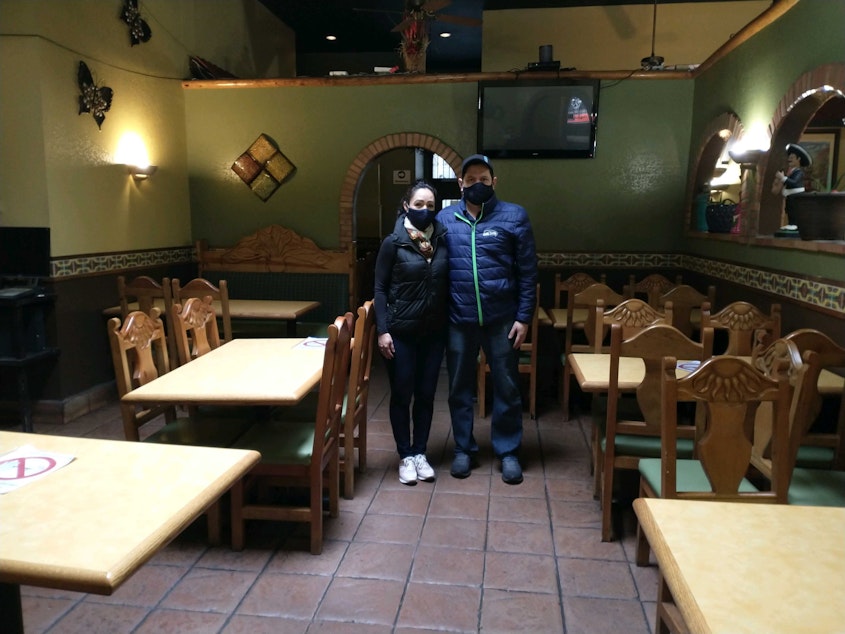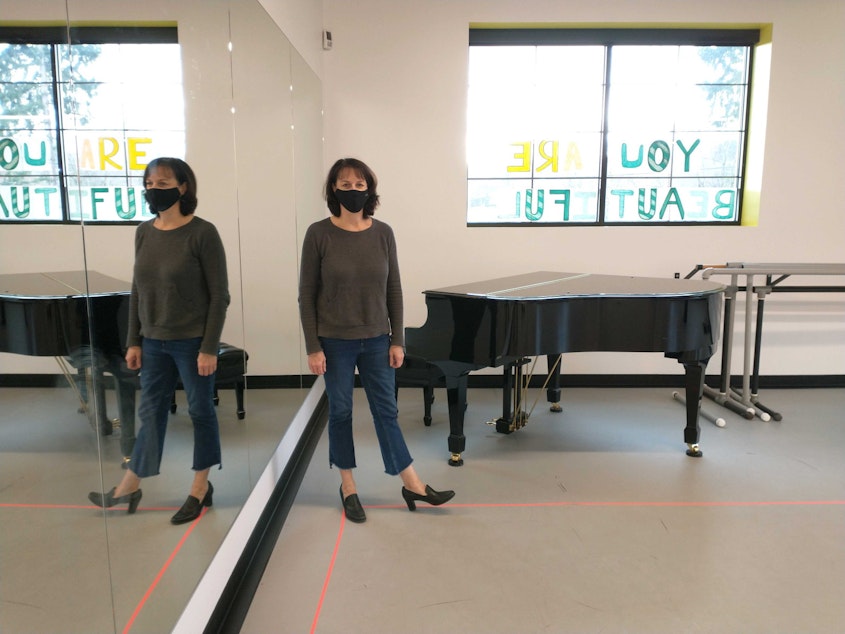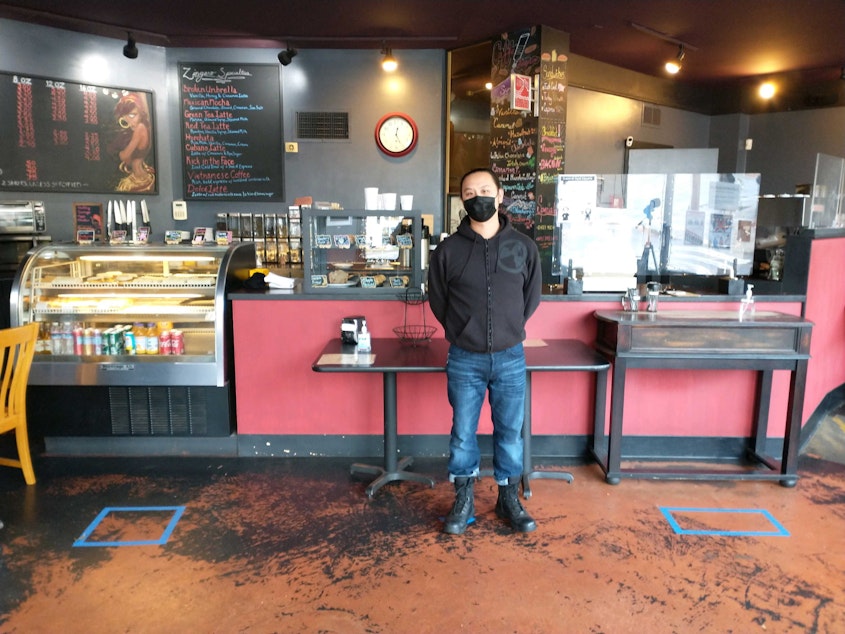'What else can we do?' Seattle business owners say this lockdown is worse than last

During the second lockdown, many businesses are approaching the end of the line. Others say they'll come out OK.
There was a time, during Washington state's first lockdown, when Libier Sandoval and her husband Rodolfo Vega were optimistic about the future of Plaza Garibaldi, the Mexican restaurant they own near Seattle Center.
While restaurants had closed for dining, takeout had buoyed them so much that when they balanced it all out, they were only down 30-40% below their normal revenue.
But this second lockdown has hit them much harder, slicing their revenue by half again. Sandoval says her customers have shown much more caution with their money, this time around.
“The phone doesn’t ring, the tablets don’t ring, you know, the online ordering system ... They’re just dead. And it’s like, OK, how are we going to do this?”
The Washington Hospitality Association estimates 100,000 workers could lose their jobs, due to this latest lockdown.
At Plaza Garibaldi, Sandoval tried to avoid layoffs, turning off heat in the restaurant to save money. Eventually, they had to let some staff go who'd been with them since they opened in 2012. Even this may not be enough.
"What else can we do?" Sandoval asked.
Her idea is to reach new customers. But with no money to print ads, as they'd done in the past, Sandoval's hoping for some luck. She's been posting specials on Facebook and hoping people notice.
Trying to keep dancing

There was a moment, during Washington state’s first pandemic lockdown, when Maygan Wurzer – the founder and director of All That Dance, in northeast Seattle, thought things were going to be OK. That moment came in June, when some of her newest dancers danced their big recital on Zoom, in their own living rooms.
Wurzer recalled that moment.
“I’m alone at home on my couch, I’m texting with all of my amazing staff, I’m looking on the screen at these eleven beautiful teenaged dancers, these elegant ballet dancers who’ve just learned how to put this art form into function, and it brought me to tears," she said. "And I also was so proud that we had prevailed.”
Fast forward five months -- the relief money that All That Dance received dried up long ago and half of Wurzer’s students have dropped out. Wurzer's business plan, which before the pandemic looked prudent enough that bankers leant her money to expand, feels ill-advised during the pandemic. She's up to her neck in debt and is hoping the bank will let her restructure that debt.
Wurzer's journey matches the experience of many Seattle businesses over two lockdowns: An early sense of joy as community came forward to support local businesses, followed by a sense of pain as the virus continues to disrupt the economy.
More relief money is on the way for businesses in Washington state, Governor Jay Inslee says. The state recently announced a $135 million aid package. But Seattle businesses have been treading water for a long time so far. Some won't be able to wait for the lifeline.

Adapting
Among those still treading water, many have stories of adaptation to share.
James Ly owns Caffe Zingaro. He's lost business due to the shuttering of cultural spaces at Seattle Center nearby. But neighbors have continued to buy his coffee, and he's adapted to meet their needs. For example, when people stopped buying sweet bakery items during the pandemic, he started featuring more savory items.
Ly said the last pandemic, nobody knew what this virus was going to do, or if businesses could even get enough hand sanitizer. This time around, people know what to do.
"People are more comfortable," he said. "And they sort of understand all the protocols we need to take to keep as safe as we possibly can.”

Then there's Zac Cooper, who opened Coopers Optique in July, when the pandemic was in full swing.
“It’s not how we envisioned this when we opened up four months ago," he said.
Cooper had only a few customers before opening; fans from the days when he'd brought glasses to people's homes and to office parties.
Since opening, he's leaned heavily into social media where the artsy frames he sells draw lots of Instagram likes. He also hosts virtual art gallery events online that he says lead to several new eye appointments each.
"We’re reaching out to new clients that we wouldn’t typically get if we didn’t have the pandemic,” he said.
Since then, he said he's meeting his sales goals every month. Still, he’s looking forward to the day when customers can gather in his shop in bigger numbers.

